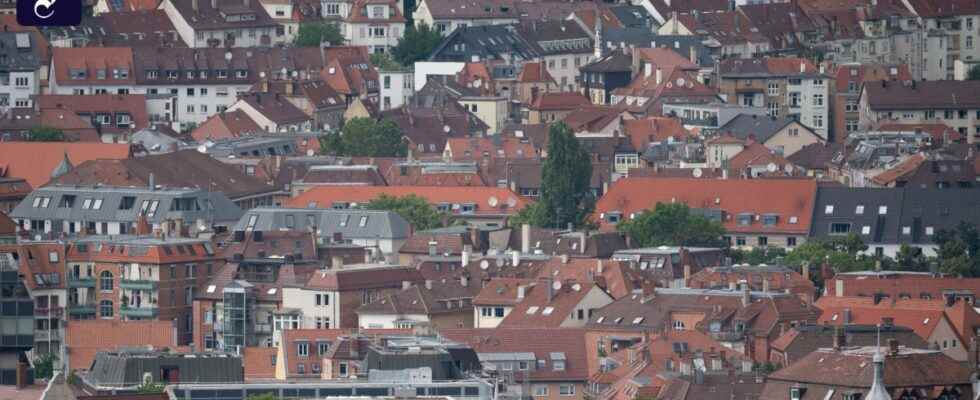SIncreasing rents for new contracts, a shortage of housing due to a lack of new buildings, high heating costs: According to the German Tenants’ Association, the situation for tenants in Germany is getting worse and worse. According to the organization, an additional burden is the energetic modernization of buildings. The federal government is putting pressure on more owners to refurbish their houses and thus reduce CO2-Emissions in the building sector decrease. However, the price for this is often paid by the tenants, criticized Franz Michel, head of housing and rent policy at the tenants’ association, on Wednesday. “The housing costs of the tenants are not actually falling,” he says. “That’s a huge problem.” The financing of modernization must be fundamentally reformed.
In an unrenovated building, tenants had to pay 1.21 euros per square meter of living space for heating and hot water per month, according to a sample calculation by the tenants’ association before the most recent increase in energy prices. After the renovation, these costs would be more than halved. But the modernization levy is added. These and the heating costs together amounted to 1.96 euros per square meter. It is already the most favorable case when the owner exhausts all funding possibilities, which, however, only rarely happens due to the administrative effort. If the full costs were allocated, the modernization allocation and energy costs added up to 3.50 euros.
Taking into account the current energy price level, the calculation turns out to be somewhat different: heating and hot water then cost 2.32 euros per square meter in the unrenovated model building. If all subsidies are used for refurbishment, the burden falls. Modernization levy and heating costs together would result in 2.07 euros. If, on the other hand, all costs are apportioned, it will be 3.61 euros – and thus more than originally. You have to know that. Landlords are allowed to add 8 percent of the modernization costs to the annual rent – not only until the expenses have been amortized, but permanently. Up to 3 euros more per square meter are allowed.
“Will not reach 400,000”
The rising housing costs were also an issue in the government survey in the Bundestag on Wednesday. Federal Building Minister Klara Geywitz (SPD) referred to the approved heating cost subsidies and the “historic” housing benefit reform, which will come into force at the beginning of 2023. With a view to the federal government’s new construction targets, she admitted: “We will not reach 400,000 this year.”
According to an analysis by the German Economic Institute (IW), the rents quoted in advertisements rose by 5.8 percent in the third quarter compared to the same quarter of the previous year. There was growth not only in the metropolitan areas, but also in rural regions. At the same time, several housing associations recently predicted that in 2022 and in the years to come there will not be 400,000 new apartments as hoped by the traffic light coalition, but rather only 250,000, so living space will remain scarce.
Changes in the Building Code
“We have to build and plan faster with all our strength,” said Geywitz in the Bundestag. The cabinet passed changes in the building code on Wednesday. Citizen participation in new development areas should be digitally possible in the future. In the event of changes, the procedure for a development plan should not start all over again, but only the changes should be discussed. The Ministry praised this as a “great relief” for project developers. The construction minister also referred to the 14.5 billion euros planned for social housing construction by 2026. In the new year, she intends to give more support to non-profit building projects. The special depreciation provided for in the annual tax law should also lead to more new buildings. When criticized that the efficiency house standard 55, which will become mandatory for all new buildings in 2023, would drive up construction costs, she replied that over the lifetime of a house it would be “profitable”.
Based on an analysis by the Institute for Ecological Economic Development (IÖW), the tenants’ association called for partial warm rent to be introduced quickly. In the model already used in Scandinavia, a basic heat requirement is included in the rental price. There is a test order in the coalition agreement. Proponents of a partial warm rent see it as an incentive for landlords to renovate their houses. According to the tenants’ association, this model offers many advantages compared to the modernization levy. However, the government has not yet made any concrete plans.
